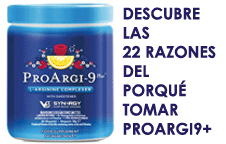Arginina, óxido nítrico y función endotelial / Arginine, nitric oxide and endothelial function
MARTÍNEZ-AUGUSTIN O, SÁNCHEZ DE MEDINA F
Fuente: Departamento de Bioquímica y Biología Molecular. Universidad de Granada. Granada. España. e-mail: omartine@ugr.es
Financiación: OMA es investigadora del Plan Ramón y Cajal del Ministerio de Ciencia y Tecnología.
RESUMEN
La arginina es un aminoácido semiesencial con importantes funciones fisiológicas. Entre ellas destaca su papel como precursora del óxido nítrico, una molécula producida a partir de la arginina por la enzima óxido nítrico sintasa en muchos tejidos y que en el endotelio vascular se comporta como vasodilatadora, antiaterogénica y antiagregante plaquetaria. El estudio detallado de esta reacción enzimática indica que la óxido nítrico sintasa tiene una gran afinidad por su sustrato, la arginina, que se encuentra en concentraciones altas en el endotelio. Por tanto, resultaba sorprendente que el funcionamiento de esta enzima estuviera condicionado por las variaciones en las concentraciones de arginina debidas al aporte nutricional. A esto se le llamó «paradoja de la arginina». Sin embargo, se ha demostrado recientemente la existencia de un inhibidor endógeno de la óxido nítrico sintasa denominado dimetilarginina asimétrica. Este compuesto disminuiría la formación del óxido nítrico por inhibición competitiva con el sustrato natural, la arginina. De ahí la importancia de la suplementación con arginina para contrarrestar este efecto. Además de la arginina, existen otros componentes de la dieta que pueden influir también en la síntesis de óxido nítrico por el endotelio vascular.
PALABRAS CLAVE: Arginina. Óxido nítrico. Función endotelial.
ABSTRACT
Arginine is a semi-essential amino acid with major physiological functions. One of the most outstanding of such is its role as an amino acid precursor of nitric oxide, a molecule produced, in many tissues, from arginine by the nitric oxide synthase enzyme. Within the vascular endothelium, nitric oxide behaves as a vasodilator, antiatherogenic, and anti-plaque aggregation agent. The detailed study of this enzymatic reaction indicates that nitric oxide synthase presents high affinity, for its substrate, arginine, which is found in high concentrations in the endothelium. Consequently, it is surprising that the functionality of this enzyme is conditioned by variations in concentrations of arginine, produced by nutritional intake. This is known as «the arginine paradox». However, the existence of an endogenous nitric oxide synthase inhibitor, known as asymmetric dimethylarginine, has been recently demonstrated. This compound would decrease the formation of nitric oxide through competitive inhibition with the natural substrate, arginine. It is for this reason that dietary supplementation with arginine would be important as a means to counteracting such an effect. In addition to arginine, there are other dietary components which may also influence.
DESCARGA EL INFORME EN PDF
Web Oficial Distribuidor Synergy WorldWide España ID 1429814



No hay comentarios:
Publicar un comentario
Nota: solo los miembros de este blog pueden publicar comentarios.